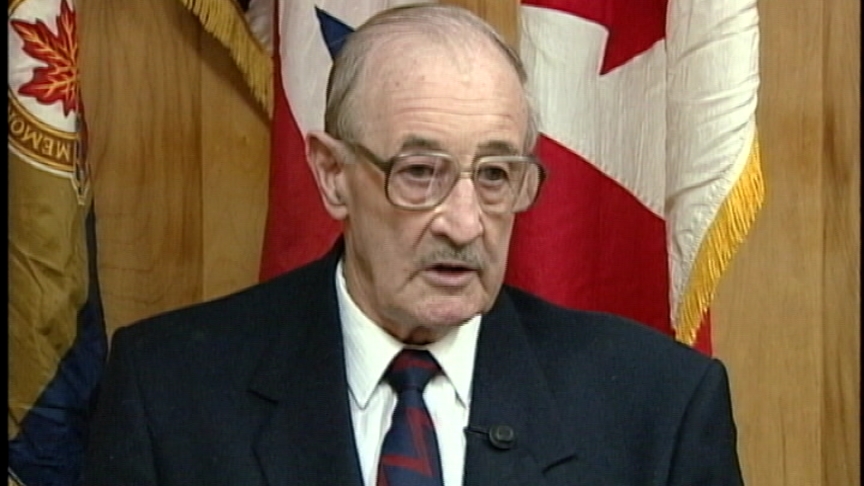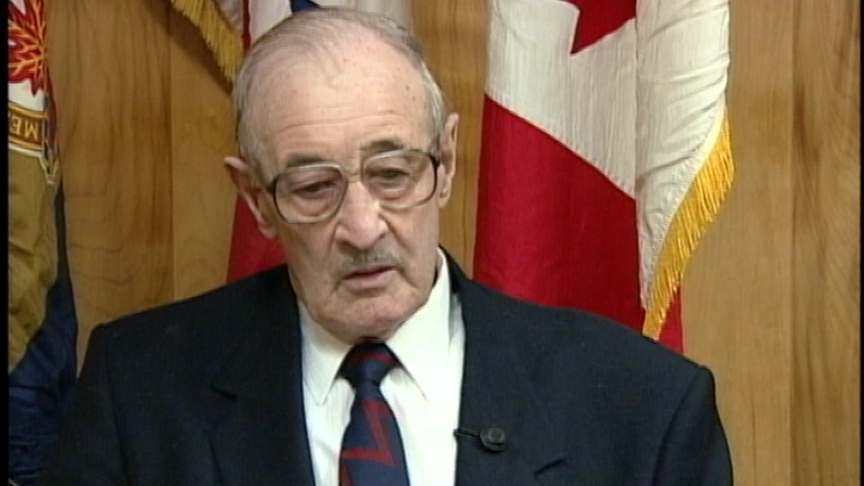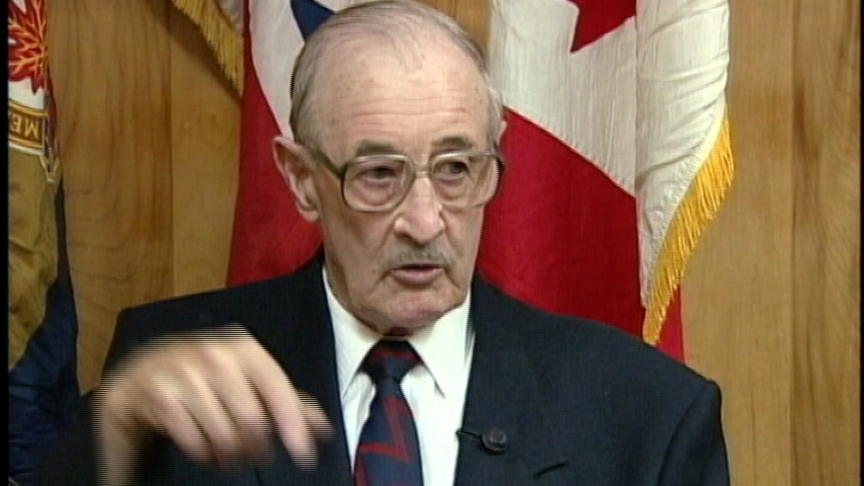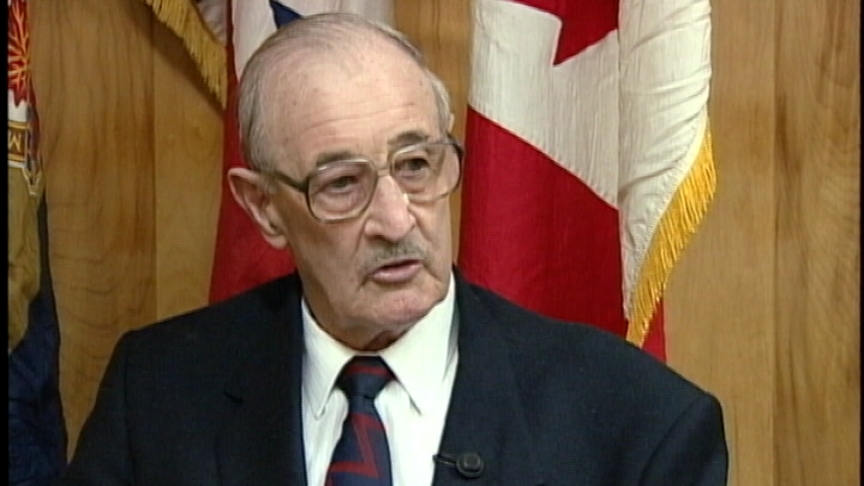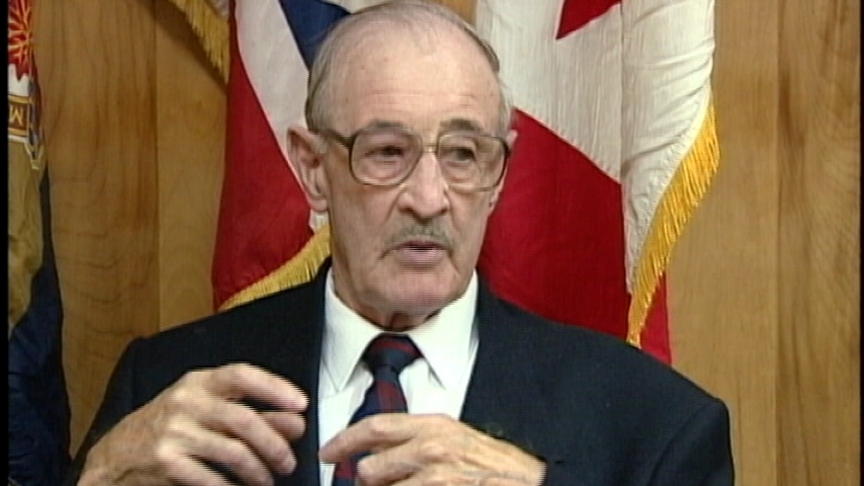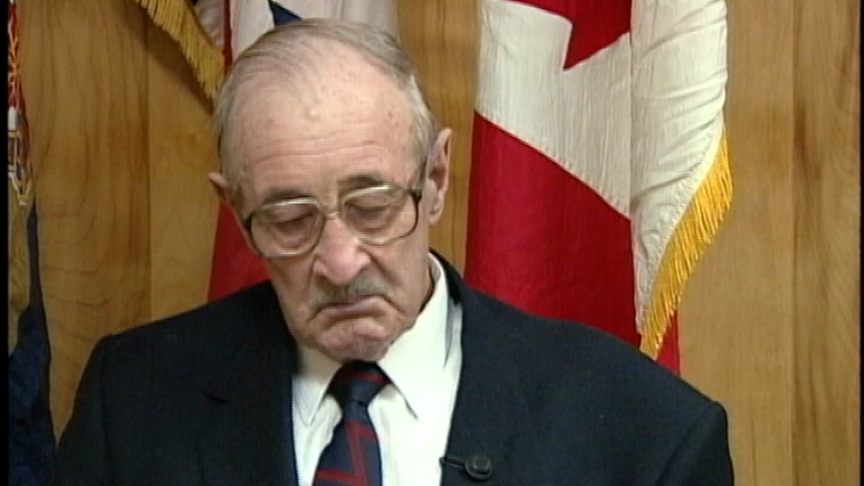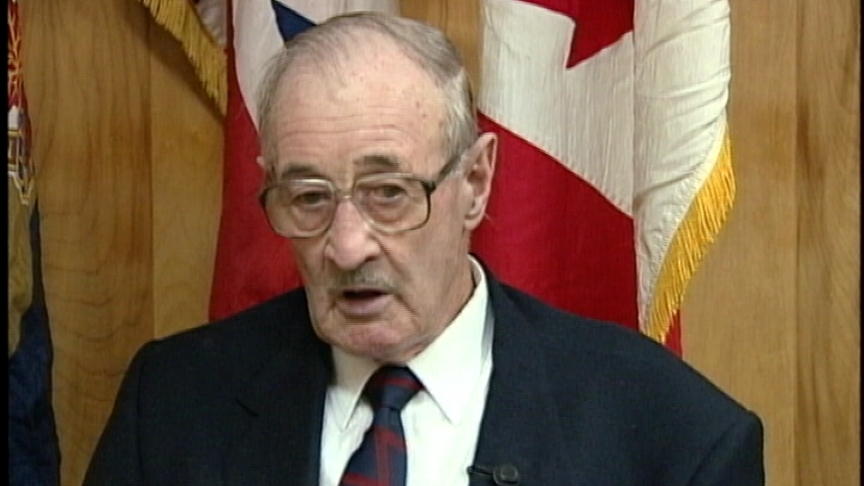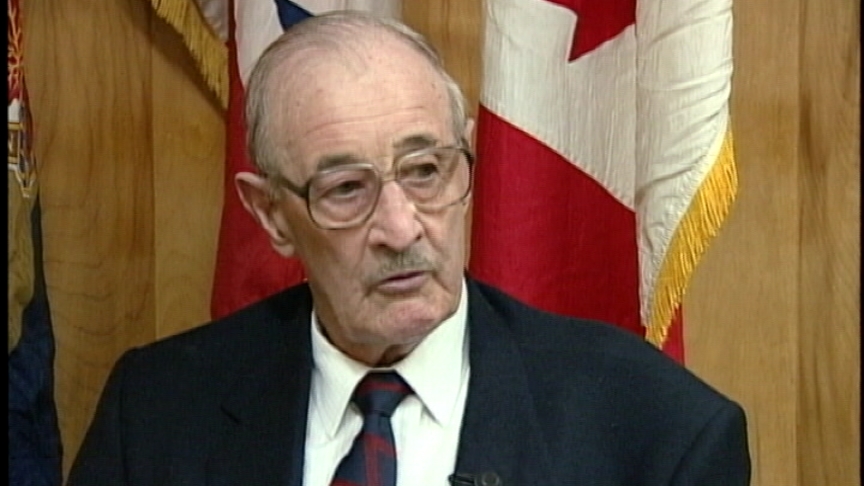There was cruisers, battleships. Another thing I forgot to
mention on the D-Day landings, floating back and forth in behind
our guns, our barges, was rocket barges and they were firing
(inaudible) rockets over our heads onto the beaches. I forgot
about them. There were just banks of them, they just swish!
Away they go. But there we had, there were all kinds of heavy,
from the navy, would come in ashore over our heads all the
time. There was air planes over head, there was bombs dropping,
and there was, the anti-aircraft guns were firing and there was,
oh, you just had one idea; self preservation and that’s what
your, and make sure if the lines went out, you had to go out and
fix them. If you went to the switchboard, you done that and
make sure everything got through. But we had, very
fortunate. We had very few mix-ups, but we didn’t know who was
on each side of us, for a while. We didn’t know if we had any
support on either side of us cause we were quite a ways up
that night.
Interviewer: The second day, you had the opportunity of seeing
clearly where you were. The build up was coming in behind
you, moving forward. What happened that second day?
Now you got me puzzled. Same as the first day. We either, I’m
not sure if we moved in or not. I can, history will tell, every
move we made is in our regimental history. But I know we moved
quite often and maybe not very far, but we had to stay within
firing range. But then you start having to bring ammunition up
to us see. The ordnance come in with their trucks and
bring ammunition up and unloading and that, and trying to
get something to eat. But it was just one steady, just fire
going everywhere, planes overhead, and German planes and
our planes. The navy just blasted away all the time and the
tanks were rolling through, tank regiments coming through our
position, moving up. It’s kinda hard to really piece together
what did happen, I mean.
Interviewer: But in your regiment, one of the principles
is if you are to fire, you fire for a period of time and then
move before counter battery fire comes in.
Well, you know, we’ve had counter battery fire, but we moved when
they required us to move so we could reach the farthest point of
our guns can go. That was the main moving thing. We had some
counter battery, but none of it really done any damage to us.
But it didn’t seem to be so much cause I don’t think the Germans
had that much artillery up there at that time. There was tanks
around, there was lots of infantry and small arms fire.
But our move, I know we took a long time to cover a short
distance, but we made quite a few moves over here and over
there to support an attack going in. Cause some days I seen us
there firing, one battery firing this way and another guy would
be firing that way. Depends where, cause we were sitting out
on our own, kind of lonesome. Then when you got a chance to
sleep, you just layed down and went to sleep.
You hope you could.



